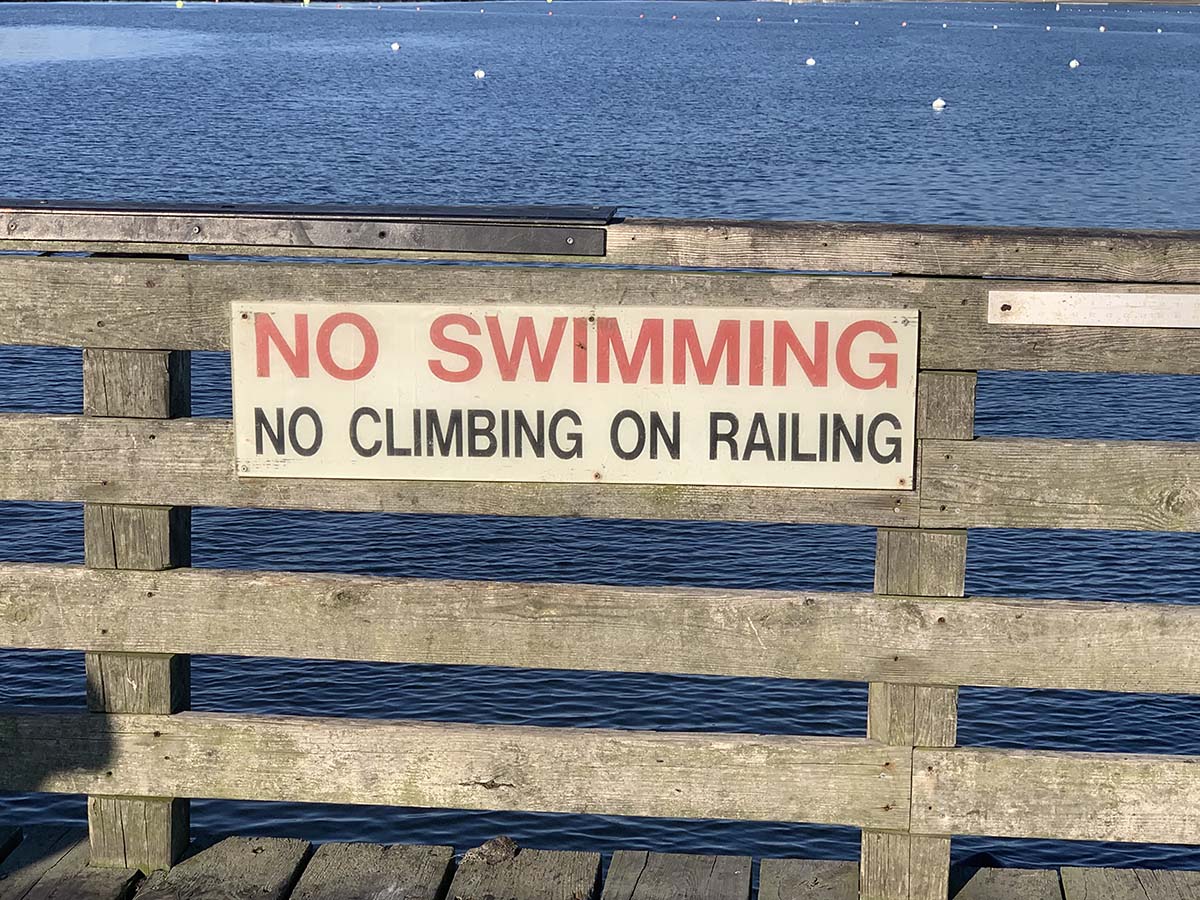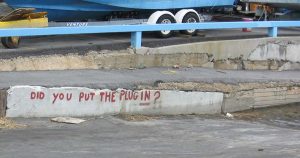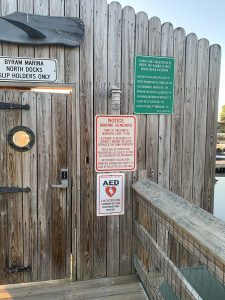
The Litigious Society
Published on August 21, 2024Full disclosure: I am not a lawyer, nor do I play one on TV, and I am not providing legal opinions or guidance. Almost every jurisdiction has its own set of rules and regulations, which are important to understand, along with their differences from maritime and admiralty law.
There is no question that we live in a very litigious society, with numerous law firms advertising with a toll-free telephone number soliciting cases from “victims.” Clearly there are those folks who have the view that if they make a mistake or screw up, they will turn around and sue anyone and everyone in sight.
Yes, particularly in the United States, just about anyone with a No. 2 pencil can sue another. There may be many reasons, including legitimate financial, personal injury or emotional grounds, to set an example, right a wrong or to make a fast buck.
Businesses, including marinas, are vulnerable to lawsuits ranging from nuisance ones to those of substance to those where one can try to make a case by cherry-picking the facts. That is not to say that there cannot be meaningful issues, but there are an awful lot of frivolous cases out there.
To protect themselves, marinas need to be proactive on multiple fronts.
Attorneys and Insurance Brokers
Having a good attorney and insurance broker who specialize in working with marinas is key. Insurance policies are long, with a base document and numerous riders with refinements in definitions of what is covered and what is excluded. One can get cross-eyed trying to get through them, but they are important. Knowing what is not covered as well as what actions of the facility can cloud or cause exclusions of coverage need to be fully understood. A good broker can help one walk through it, and having an attorney skilled in reviewing insurance documents for marinas can be very meaningful. If one is not sure about a general or, more importantly, specific issue(s) – ask a question in writing of the insurance carrier through the broker and seek an answer in writing from the carrier. An example is defining what replacement costs are and how they are determined. Most policies and jurisdictions include upgrading to current codes and regulations as part of replacement costs, regardless of the dollar policy limits, but many times this is overlooked or not fully understood when a claim is made. The more comprehensive the coverage, the more costly the premium, and understanding the issues helps one determine what business risks are acceptable to take and what level of coverage is meaningful and cost effective. While we all assume various risks, skilled brokers and attorneys can help thread the needle in a manner that is the most desirable for specific circumstances.
A case in point involved a facility that had a fixed pier and gangway to its floating docks that were destroyed in a major storm. The marina was fully insured with policy dollar limits, and the decision originally centered around the costs of simply replacing the fixed pier and gangway as they were. We pointed out that the entrance was not ADA compatible, and since they now had to replace it, it should be brought up to code. We suggested that they check with their insurance company, and the answer was ‘yes’ – the upgrade to code would be covered. Utilities, including electric, gas and/or water, are often looked at the same way.
On the lawsuit front, insurance companies usually will provide or pay lawyers to defend the policy holder, at least for the initial stages. Many times, an insurance company will have a list of legal firms to assist, with the final decision of who will represent you being yours. But there can be exceptions, limits and other fine print.

Almost every policy we have read has a clause in it that requires the insured to notify them if there is a situation that may involve a claim prior to a claim being made. Failure to do so can result in a tug of war about the coverage as things progress. Many carriers provide pre-claim assistance, including involving lawyers or others, in terms of assessing the issues and how to handle them and ensuring a desirable record of the issues, liabilities, approaches to discussions and settlement, as well as being better prepared if a claim is made.
Many insurance carriers will also provide an annual on-site review of the physical plant and/or operations at no cost. This can be very useful as it brings in another set of eyes to provide insight as to proactive improvements that could be made to help avoid regulatory, operational and/or physical plant liabilities. For those who are concerned about going to the insurance company, usually because of premium coverage, they can go to other firms to undertake a more confidential review.
An attorney who has extensive knowledge regarding marinas can be helpful in advising on the issues and potential limitations of an insurance policy, as well as what language would be desirable in the insurance policy and, particularly, how operations, including the physical plant, are described. They can also be very helpful when a claim is created in determining what the best legal routes to follow might be, such as local, maritime or admiralty law.
In addition, a skilled attorney can be helpful in reviewing and making meaningful suggestions on the marina’s contracts for in-water and upland storage, service and work orders and insurance requirements from customers, including naming the facility as an additional insured, not just a certificate holder.
Trips and Falls
One of the most common lawsuits concerns trip and fall issues. This is true for most any business with a physical plant. We get numerous calls from lawyers seeking an ‘expert’ regarding an incident involving a marina customer or employee. They are often where a customer made a mistake and then files a lawsuit against the facility. 
In addition to having good insurance, there are many simple ways to protect a facility. Chief among these would be to continue to walk the facility and remove trip hazards. Keep the docks clear from hoses, electric cords, dock lines, customers’ equipment and accessories, etc. Replace warped or loose boards or other walking surface components. Provide signage if there are steps. Ensure railings and handrails are stable. Fill potholes and remove other obstructions in the parking areas or other paths of travel. Make sure there is reasonable safety lighting throughout the evening and overnight, and that whatever timers, motion detectors or light sensors are part of that lighting are working correctly. And with all these measures, make sure that all of your staff have been trained and instructed to keep an eye out for these types of situations, take care of what they can upon discovery (such as moving a hose that’s lying in the middle of a dock) and immediately report items that need attention where they cannot or should not take care of it themselves.
Protect Against Reckless Behavior
When it comes to reckless behavior and/or those who seem to lack common sense, there is no cure nor total protection. Sometimes common sense just gets lost at the gate. However, for a marina, signage can be a life ring and, more importantly, a prevention from lawsuits. On the flip side, the absence of signage can be a significant liability. Signage is an inexpensive and major tool in one’s arsenal to protect against lawsuits. Putting signs along shorelines, piers, etc., where there is potential danger and other safety concerns is desirable. Having signs stating “Employees Only” on work buildings and other work areas is meaningful. Having safety ladders on the docks for one to climb out of the water if someone falls in is also very meaningful.
Be Policy Aware
The best piece of advice I can give is to read your insurance policy cover to cover. It is important to read the whole policy and fully understand it. Ask your broker or attorney to explain sections you don’t understand. It is also important to keep in mind that, while we cannot prevent frivolous lawsuits, regardless of their motivation, we can take meaningful, simple and often inexpensive measures to protect ourselves, save significant aggravation and prevent adverse outcomes.
Dan Natchez, CMP, is president of DANIEL S. NATCHEZ and ASSOCIATES Inc. He can be contacted by phone at 1/914/698-5678, by WhatsApp at 1/914/381-1234, by email at dan.n@dsnainc.com or online at www.dsnainc.com.
| Categories | |
| Tags |





